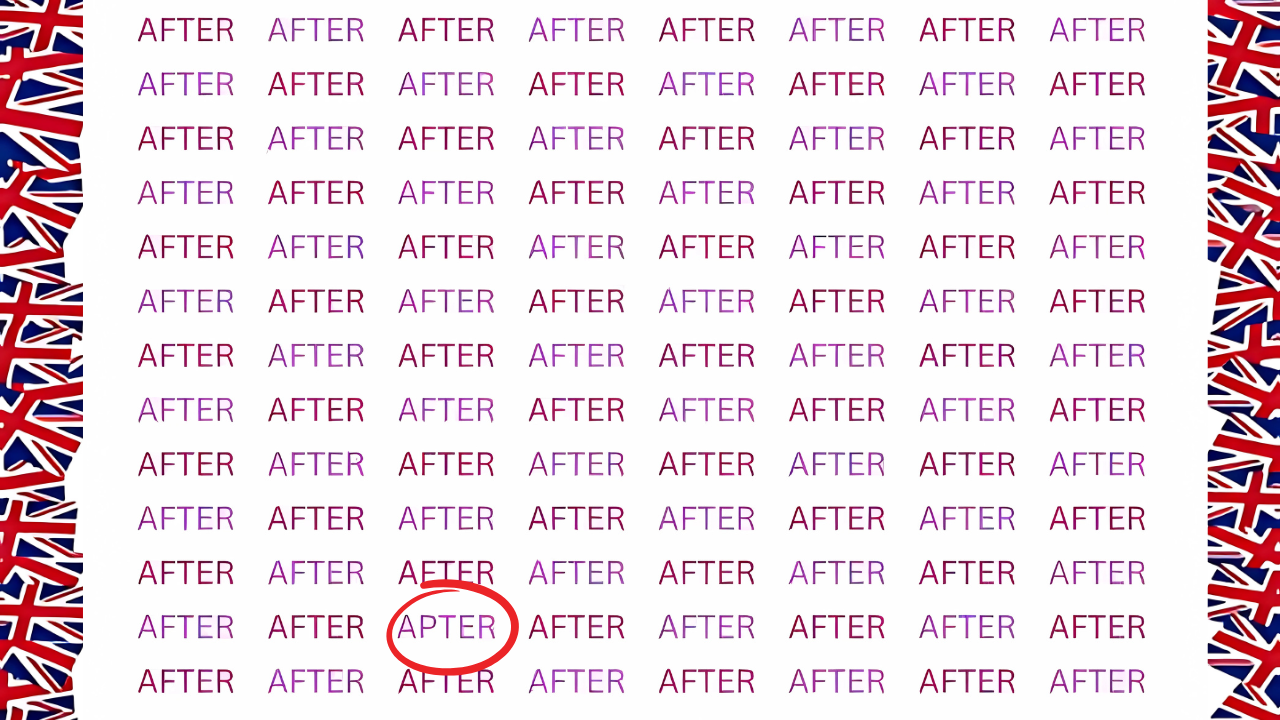UK Optical Illusion answer In recent months, a deceptively simple optical illusion has taken the internet by storm. The challenge? To find the odd word hidden among a sea of identical or nearly identical terms. These puzzles often feature a grid or board filled with the same word repeated over and over, but one word stands out—either by spelling, meaning, or design. For example, a recent puzzle from The Sun asks users to spot the odd word among many repetitions of another word, testing both observation skills and attention to detail. UK Optical Illusion Challenge: Only a Few Can Find the Mistake in Just Seconds.
These puzzles are not just for fun; they also serve as a great mental workout. They require you to scan quickly, notice subtle differences, and process visual information efficiently. The appeal lies in their simplicity and the sense of accomplishment that comes with solving them.
Why Are Odd Word Optical Illusions So Popular?
A Test of Observation and Focus
The odd word optical illusion is designed to challenge your ability to spot anomalies. Most people rely on pattern recognition, which means our brains naturally group similar items together. However, when one item is different, it can be surprisingly difficult to notice unless you pay close attention. This is why these puzzles are so engaging—they force you to slow down and look carefully.
Find the Mistake in This Image in Under 5 Seconds

Cognitive Benefits
Solving optical illusions like the odd word challenge can have real cognitive benefits. Regularly engaging with these puzzles can help improve your memory, concentration, and problem-solving skills. They also encourage mindfulness by requiring you to focus on the present moment, which can reduce stress and promote mental clarity.
Social and Competitive Fun
These puzzles are often shared online, inviting friends and family to compete. Who can spot the odd word first? This social aspect adds an extra layer of enjoyment and encourages people to keep coming back for more challenges.
How to Solve the Odd Word Optical Illusion
Step-by-Step Guide
-
Scan the Image Systematically
Start by scanning the image from top to bottom or left to right. This methodical approach helps ensure you don’t miss any details. -
Look for Minor Variations
Pay attention to small differences in spelling, font, size, or color. Sometimes, the odd word is only slightly different from the rest. -
Check for Out-of-Place Words
Occasionally, the odd word stands out because it is unrelated in meaning to the others. For example, if all words are “bell,” but one is “chair,” that’s your odd word. -
Zoom In If Necessary
If you’re struggling, try zooming in on the image. This can help you spot subtle differences that are hard to see at first glance.
UK Optical Illusion Answer

Tips and Tricks for Mastering Optical Illusions
Train Your Eyes
Practice makes perfect. The more you engage with optical illusions, the better your brain becomes at spotting anomalies quickly. Over time, you’ll start to recognize patterns and notice differences almost instantly.
Take Breaks
If you’re stuck, take a short break and come back with fresh eyes. Sometimes, stepping away for a moment can help you see what you missed before.
Challenge Others
Invite friends or family to join in. Competing to see who can spot the odd word first adds a fun, social element and can make the experience even more enjoyable.
The Science Behind Optical Illusions
How Your Brain Processes Visual Information
Our brains are wired to recognize patterns and fill in gaps. This is why optical illusions can be so tricky—they exploit our natural tendency to make assumptions about what we see. When all the words look similar, our brains may gloss over minor differences, making the odd word hard to spot.
Cognitive Flexibility and Problem-Solving
Solving optical illusions requires cognitive flexibility—the ability to see things from different angles and adjust your approach as needed. This skill is essential for problem-solving in everyday life and can be strengthened through regular practice.
FAQs
Q: Why is it so hard to spot the odd word?
A: Our brains are wired to recognize patterns, so minor differences can easily be overlooked unless you pay close attention.
Q: How can I get better at solving these puzzles?
A: Practice regularly, scan systematically, and challenge yourself with different types of optical illusions.
Q: Are these puzzles good for my brain?
A: Yes, they help improve memory, concentration, and problem-solving skills while also reducing stress.
